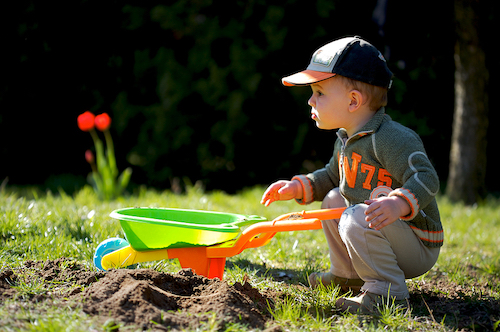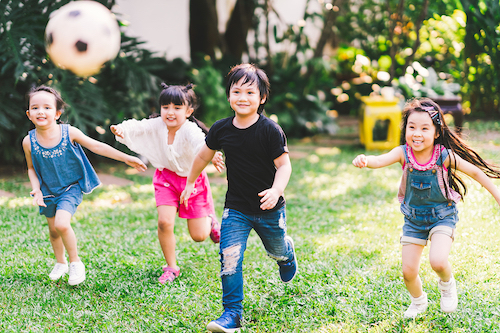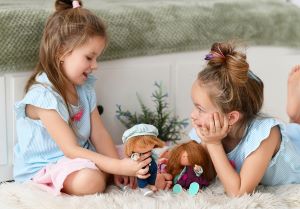November 2, 2021
by Patricia Tomasi

A recent study published in the Journal of Developmental Cognitive Neuroscience looked at white matter in infancy and its association with language outcomes in kindergarten. “Our study conducted a five-year longitudinal investigation of children from infancy to examine how early brain structure (here focusing on white matter axonal connections between different brain areas) relates to children’s later language outcomes at the start of formal schooling (i.e., kindergarten),” study author Dr. Jennifer Zuk told us.
[More]
October 28, 2021
by Elizabeth Pratt

Children from less wealthy families are likely to have found COVID-19 lockdowns more difficult due to less time spent in nature than their more affluent peers.
Researchers from the University of Cambridge found that children who spent more time in nature during lockdown had less emotional and behavioural problems.
[More]
September 7, 2021
by Patricia Tomasi

A new study published in the Journal of Pediatric Research looked at family environment and development in children adopted from institutionalized care. “This prospective study followed children recently adopted from institutionalized care over two years to investigate the relationship between family environment, executive function, and behavioral outcomes,” study author Constantine A. Stratakis told us. “My research interest is how early life stress effects development.”
[More]
August 30, 2021
by Elizabeth Pratt

The majority of children with attention deficit hyperactive disorder (ADHD) won’t outgrow the disorder.
A study published in the American Journal of Psychiatry found that just 10 percent of children with ADHD will completely outgrow it.
[More]
July 30, 2021
by Elizabeth Pratt

Parents experiencing financial hardship may talk less with their kids.
Recent research from the University of California Berkeley found that economic context may be to blame for the “word gap”, where children from lower income households have heard millions of fewer words than their more affluent peers by kindergarten.
[More]
July 21, 2021
by Elizabeth Pratt

Strong family relationships gives teenagers greater empathy for their friends.
Research published in Child Development found that teenagers who had supportive and secure family relationships had greater empathy for their peers.
[More]
July 20, 2021
by Patricia Tomasi

A new study published in the Journal of Aggressive Behavior looked at school bullying before and during COVID-19 using a population-based randomized design. “We wondered if the COVI-19 infection control measures would have an impact on the prevalence of bullying. In particular, we thought that rates would be lower because students were supervised more and were organized into smaller cohorts,” study author Dr. Tracy Vaillancourt told us.
[More]
May 18, 2021
by Patricia Tomasi

A new study published in the Journal of Body Image looked at the effect playing with ultra-thin dolls has on the way young girls view their own bodies. “We were interested in understanding whether doll play would influence girls’ developing sense of an ‘ideal’ body,” study author Lynda Boothroyd, a professor in the Department of Psychology at Durham University in the UK told us.
[More]
May 14, 2021
by Elizabeth Pratt

Adults are more generous and compassionate in the presence of children.
Researchers from the University of Bath and Cardiff University undertook eight experiments with more than 2000 participants and found that the presence of children can cause adults to be more generous.
[More]
May 5, 2021
by Patricia Tomasi
.jpg)
A new study published in the Journal of Applied Neuropsychology: Child looked at computerized inhibitory control training and its effect on reducing anxiety in preadolescent students. “The key goal of the study was to further examine the interrelation between inhibitory control (IC) and anxiety in preadolescent-aged children, and to determine whether training IC through a remote, computerized program could serve as an effective means for reducing anxiety,” lead author, Nathaniel Shanok, Ph.D. told us.
[More]